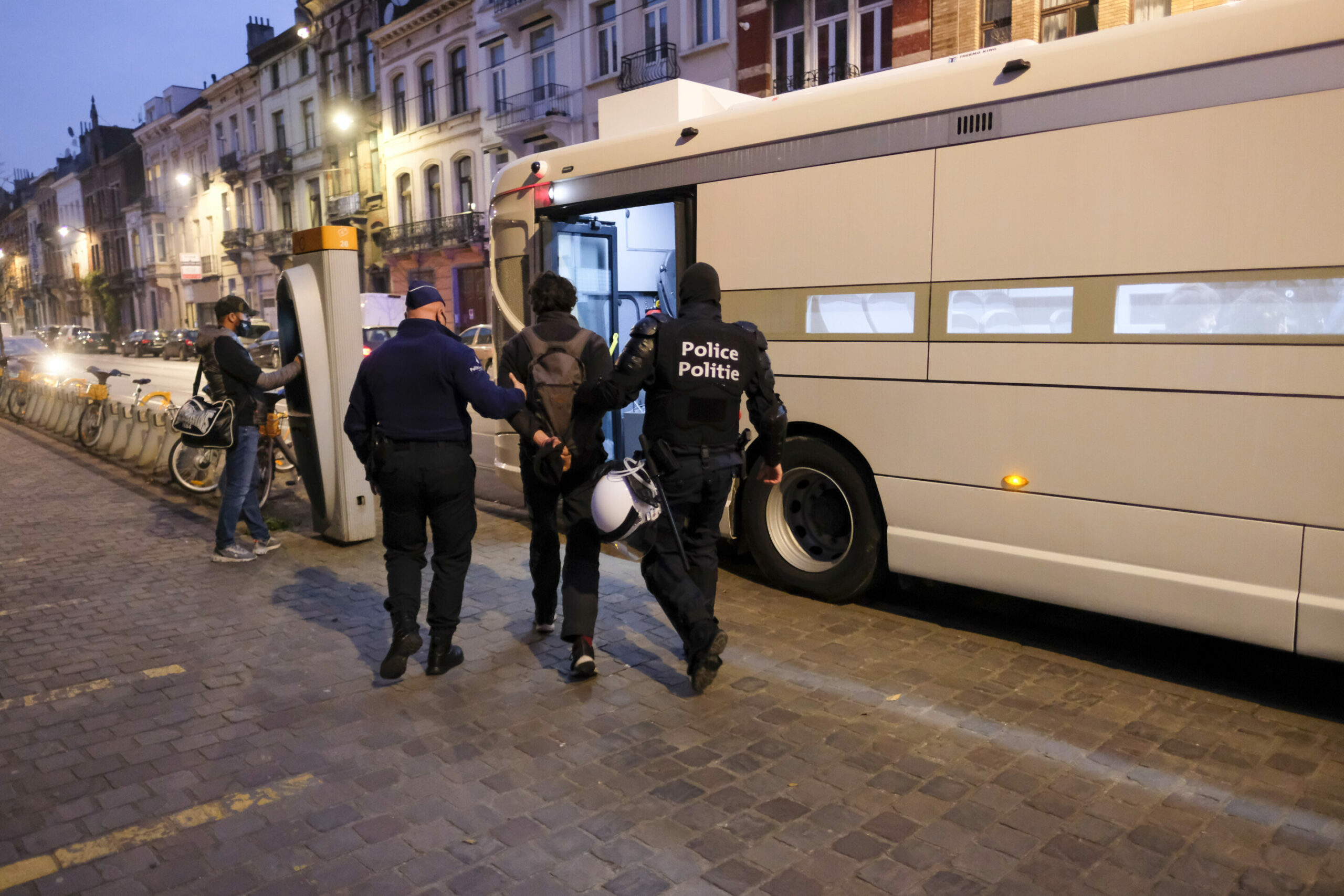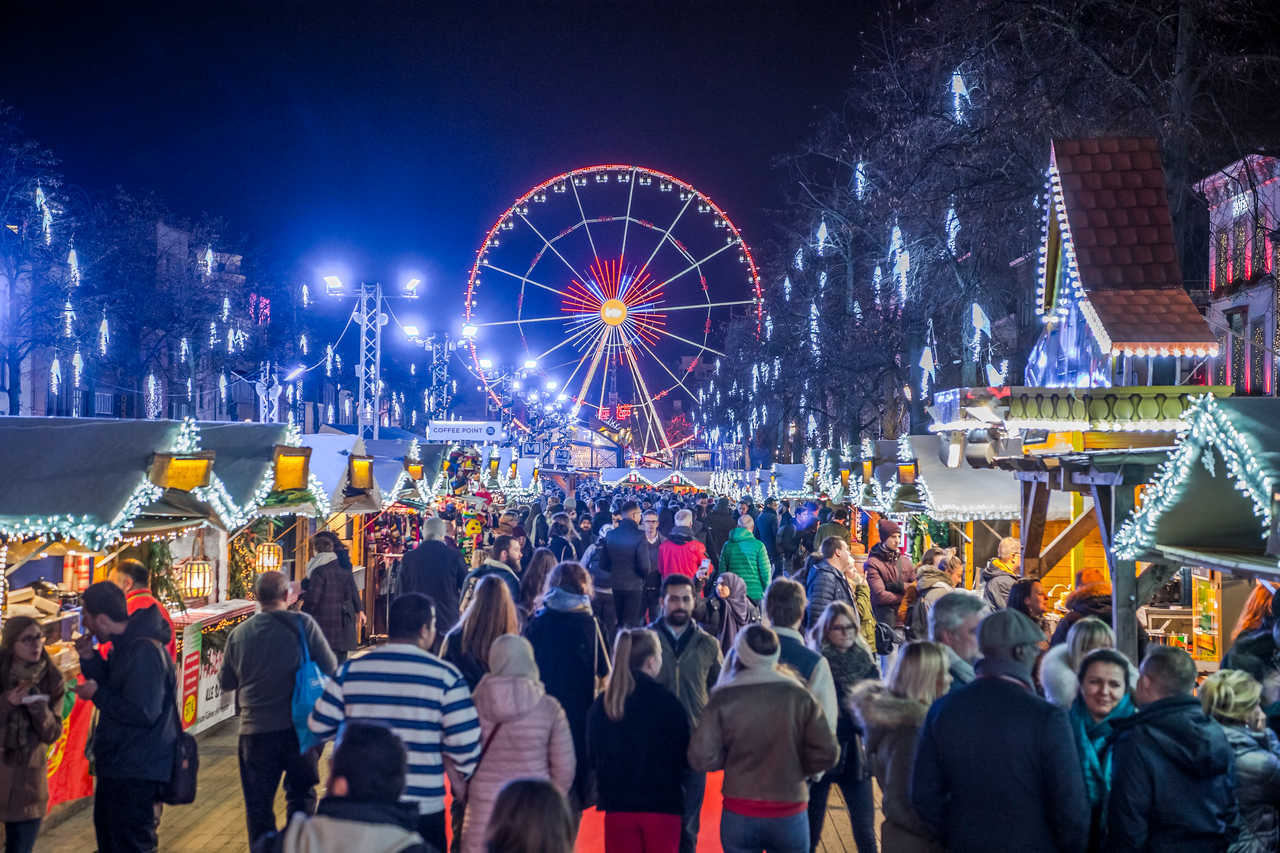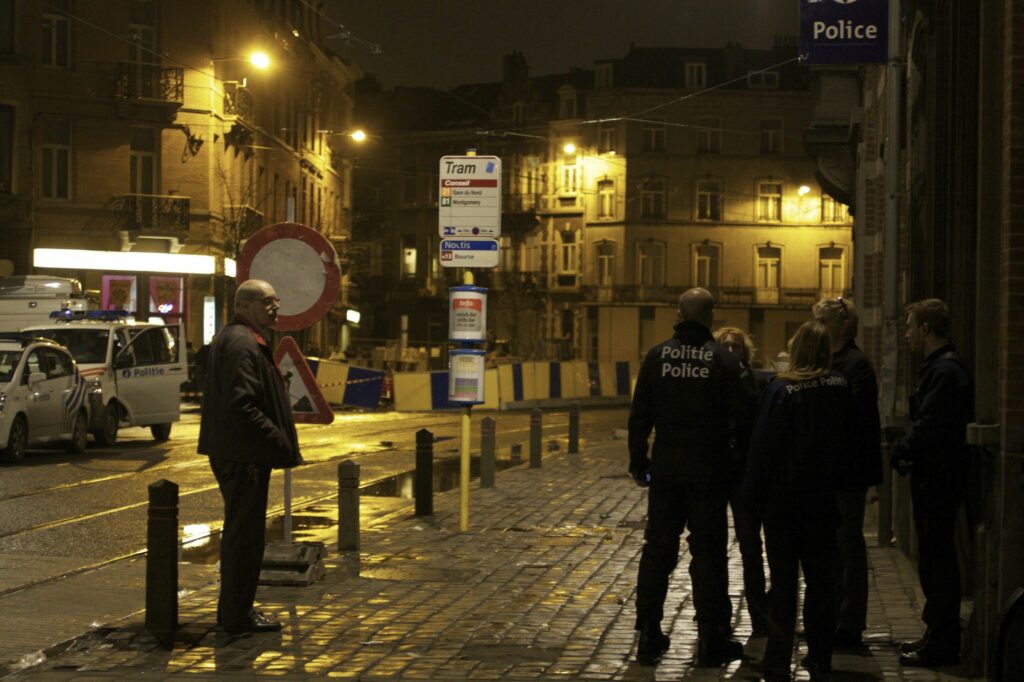Unruly fireworks, burning cars and general nuisance are not uncommon in Brussels on New Year's Eve. To pre-empt these issues, the municipality of Anderlecht is imposing a curfew for under-16s. Other communes may follow suit. But how efficient, and legal, are these measures?
Inspired by Antwerp's decision to again impose "preventative" house arrests for known troublemakers on New Year's Eve, Brussels mayors are also considering measures, as more than 200 people were arrested last year. Anderlecht announced that under-16s from parts of the Cureghem district risk arrest if they go out between 19:00 and 05:00 without a parent or guardian. The police said this also aims to protect young people.
"A curfew is a measure is a sort of pre-emptive tool by which one considers being present in public spaces a crime, in this case, young people," Jenneke Christiaens, Professor of Criminology and Youth Penology at the Vrije Universiteit Brussel (VUB), told The Brussels Times.
"Even before a crime has been committed, we are already effectively criminalising them, which I find very problematic."
Is such a curfew legal?
Taking such a measure is within the mayor's rights. "Mayors in Belgium have quite far-reaching powers to maintain public order and safety," Aube Wirtgen, an Eubelius lawyer who specialises in constitutional and administrative law, told The Brussels Times. This measure restricts the freedom to come and go – a constitutional freedom. "But there is a legislative basis for mayors to do so."
They must, however, have a legitimate reason. "There must be a concrete danger. But if a mayor wants to guarantee safety, particularly that of emergency services, I would say there is good reason."

Police arresting someone in the centre of Anderlecht. Credit: Belga / Nicolas Maeterlinck
The measure is also limited. "It only applies to certain streets in Cureghem and only for people under 16. Unlike in Antwerp, they can go out but only when accompanied by a parent or guardian."
Far-reaching consequences
Whilst a curfew may be legal, it must also be reasonably justified and proportionate. "Here, we could call into question that it is imposed based on incidents that occurred last year." Regarding proportionality, Wirtgen questions whether this isn't "shooting a proverbial cannon at a gnat".
Because it applies to all under-16s, most of them will be blameless. "They are including people who have never done anything wrong. That is very far-reaching," said Els Dumortier, VUB professor in youth justice. She questioned what would happen to an innocent 15-year-old, for example.
Police will reportedly pick up under-16s who venture outdoors alone and ask parents to collect them from police stations. "But what if the parents don't come; will youngsters end up in a police cell even if they have not committed a crime? Or will parents be arrested?"
Targeted curfews for people who have committed crimes would be more reasonable than excluding an entire demographic because of a few troublemakers, she said. "The fact that mayors can restrict citizens' freedom like this makes me very uncomfortable."
The measure could still be challenged before the Council of State. "We can expect a lawsuit via an interlocutory procedure. But I would not rule out that the court deems the measure proportionate," said Wirtgen.
Stigmatising and inefficient
The measure has also been criticised as a form of stigmatisation and discrimination of certain groups. "It targets a certain neighbourhood and specific groups. We are criminalising their presence, which isn't necessarily a constructive approach," said Christiaens.
In this case, the measure also puts a greater weight of responsibility on groups that are already more vulnerable. "Targeting society's weakest is an easy solution." The measure also fails to account for the inequality in living conditions. "Lower-income households don't have the same opportunities to go to parties, for example."
Christiaens cites the Brussels Christmas market as an example of the intervention's hypocrisy. "The disruption it causes annoys many residents, but mayors don't intervene because there are other interests at play."

Locals have in the past complained the Christmas Market is too loud and big and brings mountains of rubbish. Credit: City of Brussels
And minors aren't the only culprits, the experts stress. "Adults do bad things, too. Will they install curfews for everyone?" Christiaens asked. "Not everyone belonging to these groups has bad intentions."
While the measure was welcomed by the police, questions have been asked about whether this creates more work for officers on one of the busiest nights of the year. They may have to intervene even before something goes wrong. Meanwhile, the measure could hurt the perception people in the affected neighbourhoods have of police.
Christiaens also questions the efficacy of a curfew as a deterrent. "We know that doesn't work. Deterrence is not an objective that has an effect." Finally, the measure is easy to circumvent: it doesn't start until 19:00, giving young people time to go to another location.
What would work?
Both Christiaens and Dumortier recognised that anti-social behaviour should not be trivialised. However, there are other solutions.
"Firstly, there is a regional ban on fireworks, but this is rarely properly enforced. Authorities fail to curb fireworks sales, leading to many dangerous incidents. But instead of punishing this crime more strictly, they choose to focus on targeting individuals," said Christiaens.
She added that the relationship between perceived "troublemakers" and police should be handled differently. "How does violence arise? Not all young people are innocent, but it is up to the police to ensure that violence does not arise. Sometimes they are a triggering factor."
Christiaens concluded that if groups are constantly confronted by police who treat them badly, this will have longer-term repercussions.

